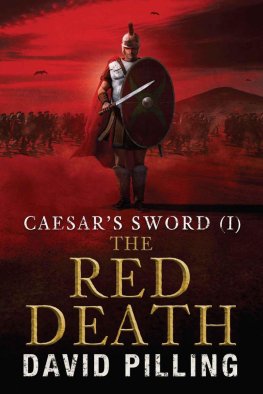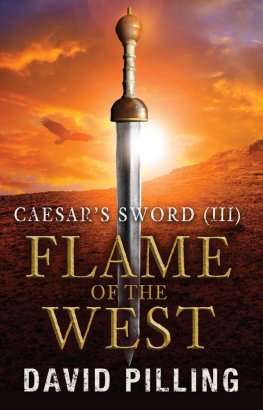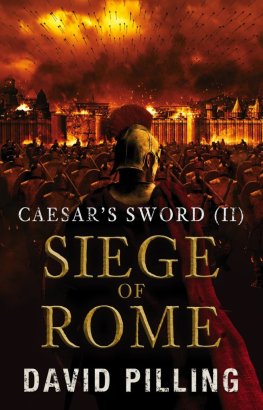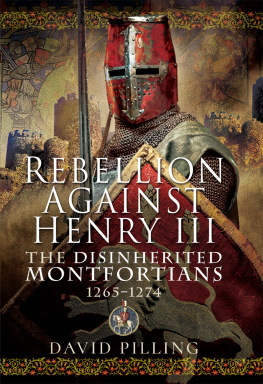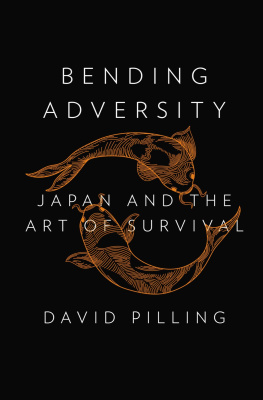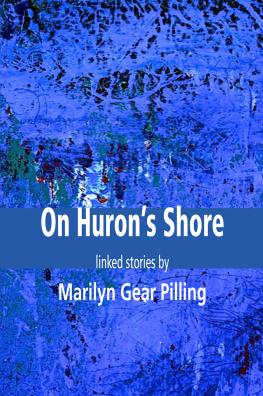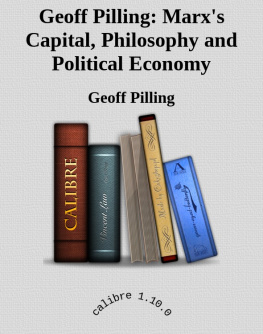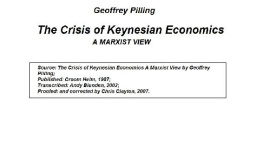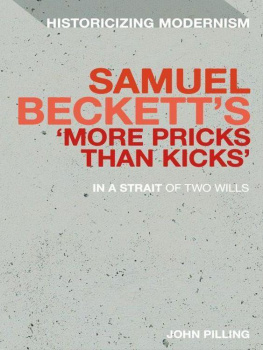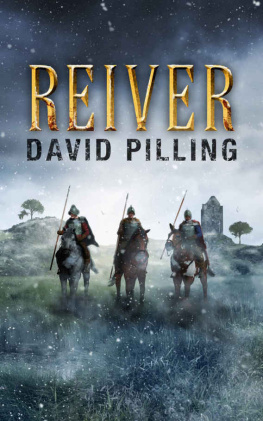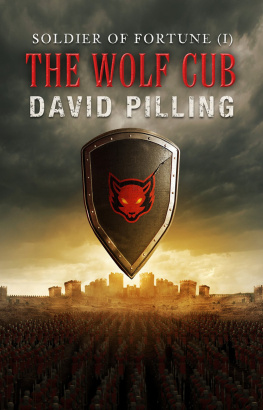David Pilling - The Red Death
Here you can read online David Pilling - The Red Death full text of the book (entire story) in english for free. Download pdf and epub, get meaning, cover and reviews about this ebook. year: 2013, genre: Adventure. Description of the work, (preface) as well as reviews are available. Best literature library LitArk.com created for fans of good reading and offers a wide selection of genres:
Romance novel
Science fiction
Adventure
Detective
Science
History
Home and family
Prose
Art
Politics
Computer
Non-fiction
Religion
Business
Children
Humor
Choose a favorite category and find really read worthwhile books. Enjoy immersion in the world of imagination, feel the emotions of the characters or learn something new for yourself, make an fascinating discovery.
- Book:The Red Death
- Author:
- Genre:
- Year:2013
- Rating:4 / 5
- Favourites:Add to favourites
- Your mark:
- 80
- 1
- 2
- 3
- 4
- 5
The Red Death: summary, description and annotation
We offer to read an annotation, description, summary or preface (depends on what the author of the book "The Red Death" wrote himself). If you haven't found the necessary information about the book — write in the comments, we will try to find it.
The Red Death — read online for free the complete book (whole text) full work
Below is the text of the book, divided by pages. System saving the place of the last page read, allows you to conveniently read the book "The Red Death" online for free, without having to search again every time where you left off. Put a bookmark, and you can go to the page where you finished reading at any time.
Font size:
Interval:
Bookmark:
David Pilling
The Red Death
There is another wonder in the country called Ergyng. There is a tomb there by a spring, called Llygad Amhar; the name of the man buried in the tomb was Amhar. He was the son of the warrior Arthur, who killed him there and buried him.
- The Historia BrittonumPrologue
Abbaye de Rhuys, Brittany, 568 AD
I, Coel son of Amhar son of Arthur, am close to death. My sixty-sixth year on this earth looms, though I have no great desire to reach it. A man robbed of his strength and vigour is left only with his mental resources to fall back on. Lately these have ebbed. A strange mist encroaches on my mind, making me forgetful and indecisive.
Abbot Gildas, that good man, is most understanding of my frailty, and does all he can to ensure my comfort. The monastery he founded here on the Isle of Rhuys is the finest in Brittany, a monument to Christ built in stone and glass. I will be happy to die here.
My husk of a body, riddled with agues and rheumatic pains, confines me to my cell for much of the day, though I insist on hobbling to Vespers. With nothing to do but linger in idleness and prayers, I find my thoughts wandering back to the past.
And such a past. I have witnessed the splendour and pity of the world, the rise and fall of great empires, and in my own small way contributed to the defence and salvation of the greatest. I have spilled my lifes blood on battlefields from the heartlands of Britain to the desert sands of Africa. There is barely a patch of my wrinkled skin that does not bear the scars of war, which the abbot once compared to the wounds of Christ.
Like our Lord, you have suffered greatly for the faith, he told me, you are blessed to live this long.
Blessed? Maybe. Privately I suspect my advanced years are a punishment. Age, disease and the sword have deprived me of all those I loved. Their souls have flown into darkness. I am left alone, a fragment of decaying flesh sustained by a little bone and sinew.
My darkness is lit by the sputtering flame of a single candle. The abbot would gladly allow me more candles if I wished, enough to light my cell like the nave of a cathedral, but I refuse to be indulged.
One last work remains. A heap of parchment lies on the lectern before me. My withered hand trembles as it grasps the quill, and my writing is a painful scrawl. Before the mists descend, extinguishing the last spark of my memory, I have taken a solemn vow to commit the story of my life to manuscript.
I do this not to please my vanity, but to leave behind a history that will serve as a lesson to future generations in survival and redemption.
I, Coel, once a soldier and now a poor man of God, write this.
Chapter 1
Unless you are some benighted savage with no knowledge of the world beyond your immediate ken, you will have heard of Arthur. His name resounds from the Island of Britain like a trumpet. The echoes have spread across the decaying corpse of the Western Empire, giving hope to those who dwell in darkness and ruin. He is remembered as more than a man: rather, a sort of god or deathless warrior-king who will rise from his unknown grave in Britains darkest hour and lead his people to victory.
I am living proof that he was but a man. I do not mean to recount his life and career, only those details relevant to my history.
Know, then, that I was born the only child of Amhar and Eliffer, five hundred and two years after the martyrdom of Christ. My father was one of Arthurs five bastard sons, and my mother a direct descendent of Coel Hen, who was King in the North after the Roman legions abandoned Britain to its fate.
Little is said of Arthurs children these days. Many of the poets and storytellers omit them altogether. This is understandable. All of Arthurs sons led sad lives, bent under the weight of their fathers gigantic shadow, and most came to bad ends. Only Cydfan, the eldest, achieved peace and long life by shaving his head and entering a monastery.
My father, Amhar, came to the worst end of all. In the last days of Arthurs Peace, when his teulu were split into factions and there was plague in Britain and Ireland, Amhar chose to desert Arthur and throw in his lot with the arch-traitor, Medraut.
Some days before the strife of Camlann, Arthur and Amhars war-bands met in battle. Amhars men were routed, and he taken prisoner.
My grandfather was as merciless in his wrath as any Roman Emperor. He cut his sons throat and buried him under a cairn near a spring. I have heard that he dug the grave-pit and piled up the stones with his own hands, still reeking with Amhars blood.
Arthurs vengeance resembled that of Antonia, mother to the Emperor Claudius, when she sealed up her sinful daughter Livilla and listened to her cries as she starved to death. Amhars punishment was to die, while Arthurs was to personally bury the child he had killed. My grandfather was a stark man. He spared no-one the consequences of their actions, least of all himself.
I know all this from my mother. She, poor woman, also suffered for her husbands treason. Arthur ordered her execution, and I, who was barely two years old at the time, to be ripped from her arms and brought to his llys at Caerleon. I believe he intended to spare my life, and have me raised as a warrior under his close supervision.
Whatever his plans for me, they would never come to pass. A young warrior of Amhars teulu named Owain had escaped the slaughter of his lords host. He fled the battlefield and hastened to the palace of Caerwent, where Amhar had placed his wife and son for safe keeping.
Owain had ever loved my mother from afar, which was why he rescued her from Arthurs vengeance. I was too young to remember, but in later years she told me of the story of our flight from Britain.
The young warrior came stumbling into her bower, exhausted and rank with the blood and filth of battle.
Your husband is defeated and slain, my lady, he said, going down on one knee before her, and his war-band scattered. Arthur has ordered your death. His men are close behind me. We must flee while there is still time.
Flee? Where to? demanded Eliffer, shocked his appearance and the dreadful news he brought. Word of Amhars death was already spreading through the palace. Fearful of being put to the sword by Arthurs soldiers, most of the servants chose to abandon their mistress.
Nowhere in Britain will be safe for you, he replied, we must get to the coast and take ship for Frankia. You and your son can find refuge there.
There was no time to think of a better plan. My mother fled Caerwent with just Owain for a guard and two or three loyal servants who refused to abandon her. Owain perched me on the front of his saddle.
The fugitives pushed on through the night, allowing their horses no rest as they headed south-west, following the coastline of Gwent in the hope of finding a ship before Arthurs men caught up with them.
They reached the settlement near the old Roman fortress of Isca. This had become a poor and squalid place, much degraded since the legions had left, but it did at least possess a harbour. Here Eliffer bribed a fisherman with a handful of the gold coins she had snatched up before fleeing from Caerwent. He reluctantly agreed to put to sea at once, even though it was pitch-dark and the weather promised a storm.
We owed our lives to the skill and courage of the fisherman and his crew. After three days at sea, through the midst of storms and ferocious waves that threatened to smash their vessel to splinters, they brought us safe to the coast. Not to Frankia, for the boat was blown off-course, but the western tip of the kingdom of Domnonia in Less Britain.
There was no pursuit. We didnt know it then, but soon after our flight from Caerwent the hosts of Arthur and Medraut destroyed each other in the valley of Camlann.
Font size:
Interval:
Bookmark:
Similar books «The Red Death»
Look at similar books to The Red Death. We have selected literature similar in name and meaning in the hope of providing readers with more options to find new, interesting, not yet read works.
Discussion, reviews of the book The Red Death and just readers' own opinions. Leave your comments, write what you think about the work, its meaning or the main characters. Specify what exactly you liked and what you didn't like, and why you think so.

